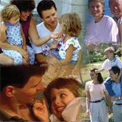North Central Health District Identifies West Nile Virus Related Death
Posted October 14, 2021 by Michael Hokanson
Everyone is Encouraged to Protect Themselves from Mosquito-Borne Illnesses
North Central Health District (NCHD) epidemiologists have confirmed the first case of West Nile Virus related death within the district in 2021. The individual was an older resident of Houston County with chronic health issues and no recent travel history. NCHD is urging all residents to protect themselves from mosquito bites.
West Nile Virus is most commonly spread by infected mosquitoes feeding on humans. Only 20 percent of people with the virus will show symptoms, which typically appear three days to two weeks after infection. Common symptoms of West Nile Virus include fever, body aches, headaches, nausea, vomiting, diarrhea or a rash on the chest, stomach or back. Most people with these symptoms recover completely, but weakness and fatigue can last for months after other symptoms disappear.
The disease is associated with more severe symptoms in rare cases. One in 150 people infected with West Nile Virus develop severe neurological illness like encephalitis or meningitis, characterized by inflammation of the brain or surrounding tissues. Signs of these illnesses include fever, headache, neck stiffness, disorientation, tremors, seizures, coma or paralysis. About ten percent of individuals who develop neurological infection from West Nile Virus die.
West Nile Virus can be transmitted to anyone, but certain people have a higher risk of infection. People who work outdoors or spend large amounts of time outside have higher risk of infection because of the increased exposure to mosquitoes. Adults over the age of 60, and people with certain medical conditions or health issues are at a higher risk of developing serious symptoms from West Nile Virus.
There is no vaccine or treatment for West Nile Virus. Symptomatic individuals can use over-the-counter medication to treat symptoms like fever, pain and soreness, but the virus itself cannot be treated. Talk to your healthcare provider about introducing new medicine, especially if you have a medical condition or take prescription medication. Individuals need to go to a hospital if severe symptoms begin to show to receive supportive treatment through nursing care, intravenous fluids and breathing assistance as needed.
“Protecting against mosquito bites is protecting your health,” said NCHD Epidemiologist Amber Erickson. “We can all take steps to reduce our risk of these illnesses. Personal protection doesn’t just protect you, it helps protect our families and community from mosquito-borne illnesses.”
Georgia’s mosquito season regularly lasts from March to October, but as warmer temperatures persist into fall, mosquito season can last longer. It is important to practice personal prevention measures against mosquitoes. You can actively protect yourself from mosquito bites by practicing the “Ds of Prevention.”
- Dusk/Day/Dawn – Mosquitoes with the potential to spread West Nile Virus are usually active at dusk and dawn, so limit or avoid outdoor activities during these hours.
- Dress – Wear lightweight, loose-fitting clothes, long-sleeved shirts and long pants to cover skin and reduce the chances of mosquito bites.
- DEET – If you wear clothes that exposes skin, make sure to cover that skin with an EPA-approved insect repellant containing DEET to keep mosquitoes away.
- Doors – Make sure doors and windows are in good condition and fit tightly. Repair any damaged or torn screens as soon as possible.
- Drain – Mosquitoes lay eggs in standing water, even very small amounts. tip standing water out of receptacles regularly and toss into the garbage unneeded things that hold water. Tires, buckets, planters, pool covers or other objects can retain water and provide mosquitoes with a breeding ground.
“Mosquito-related illnesses are always a threat, especially when rains create areas that mosquitoes use to grow their population,” said NCHD Environmental Health Director Carla Coley. “Controlling the mosquito population can reduce the risk of more cases of West Nile Virus. The recent rain has given mosquitoes more places to breed. We ask everyone to check around their homes and eliminate any areas where water has collected.”
If you have standing water on your property that cannot be drained, treat it with larvicide to prevent mosquito larvae from maturing into adults. All NCHD county health departments offer free larvicide tablets to homeowners while supplies last. Find your nearest health department at NCHD52.org/Locations.
More information on mosquito-borne illnesses and mosquito repellants can be found at dph.ga.gov/EnvironmentalHealth. For additional information about West Nile Virus, visit cdc.gov/westnile.


 Contact Us
Contact Us Locations
Locations Job Openings at North Central Health District
Job Openings at North Central Health District Internships
Internships Board of Health
Board of Health Cost and Insurance
Cost and Insurance Privacy Policy
Privacy Policy Teens & Adults
Teens & Adults For Children
For Children Other Programs
Other Programs County Environmental Health Offices
County Environmental Health Offices Chemical Hazards
Chemical Hazards Tourist Accommodations
Tourist Accommodations Food Service
Food Service Rabies Control
Rabies Control Lead Poisoning Prevention
Lead Poisoning Prevention Body Art
Body Art Land Use
Land Use Swimming Pool Program
Swimming Pool Program Water Testing for Private Wells
Water Testing for Private Wells Environmental Health Complaints
Environmental Health Complaints Georgia Food Recall Alerts
Georgia Food Recall Alerts Personal & Family Preparedness
Personal & Family Preparedness Emergency Preparedness for Functional & Access Needs
Emergency Preparedness for Functional & Access Needs Severe Weather Preparedness
Severe Weather Preparedness Emergency Preparedness Training
Emergency Preparedness Training Medical Reserve Corps
Medical Reserve Corps Regional Healthcare Coalitions
Regional Healthcare Coalitions Strategic National Stockpile/Medical Countermeasures
Strategic National Stockpile/Medical Countermeasures